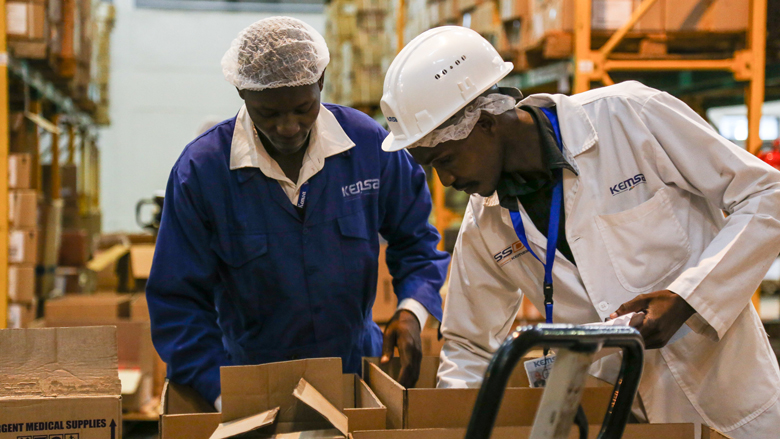
Elena Perez Celis
Dec 11, 2024
Expanding Regional Trade
Despite significant efforts to enhance trade between African countries, the continent continues to engage more in trade with the rest of the world than within its own borders. This disparity underscores the importance of targeted investments in cross-border value chains that can foster stronger economic ties among African nations.
By creating interconnected industries in key sectors, regional value chains have the potential to not only boost intra-African trade but also drive sustainable economic growth. Leveraging the resources and capabilities of multiple countries can increase productivity, improve market access, and reduce reliance on external markets. Strengthening these ties is essential for unlocking the continent's economic potential and achieving long-term development goals.Boosting
Trade Across Borders
Regional value chains offer an inclusive way to improve trade within Africa. Instead of producing entire products in one country, the focus shifts to trading components and parts across borders. The African Continental Free Trade Area (AfCFTA) supports this by providing preferential tariff treatment for goods made using materials sourced within Africa. This approach encourages local production and strengthens regional markets.
The AfCFTA aims to create jobs, raise incomes, transform economies, and usher in a new era of growth for the continent.
Focusing on Agriculture
Agriculture is one of the most promising sectors for developing regional value chains. Despite its vast potential, many African countries rely heavily on food imports. Investments in special agricultural processing zones aim to unlock the full potential of this sector and reduce dependence on external suppliers.
Strengthening Pharmaceutical Production
Recent health crises, such as the Covid-19 pandemic, have shown the need for Africa to strengthen its pharmaceutical manufacturing capabilities. Initiatives like the African Pharmaceutical Manufacturing Initiative aim to increase local production of essential medicines, reducing reliance on imports and improving health security.
The Role of the Private Sector
The private sector is crucial to making regional value chains work. Businesses drive industrialisation, create jobs, and foster innovation. By taking advantage of opportunities provided by initiatives like the AfCFTA, companies can scale operations and contribute to Africa’s economic transformation.
Investing in regional value chains not only strengthens local economies but also helps create a more integrated and prosperous Africa.
☗Muinmos & Africa Due Diligence - ADD™ Partner to Boost Trust in Africa's Financial Sector
☗Africa's fintech sector is booming
☗Africa Beckons Investors: Debunking the Myth of High Risk
☗BRICS Expansion: Africa at the Centre and the Future of Crypto Adoption
☗Ghana’s General Elections: A Pivotal Moment for Democracy and the Economy
☗GABS 2024: Strengthening Germany-Africa Economic Partnerships
☗Nigeria’s Central Bank Raises Interest Rates Again Amid Rising Inflation
☗Sarama Resources Initiates Legal Action Against Burkina Faso Government After Unlawful Withdrawal of Mining Permit
☗Intra-Africa trade: The Key to Africa’s Economic Growth & AfCFTA’s Role
☗Human Rights and Industrialisation in Focus at Addis Ababa Conference
Subscribe to receive our latest posts & updates via email.